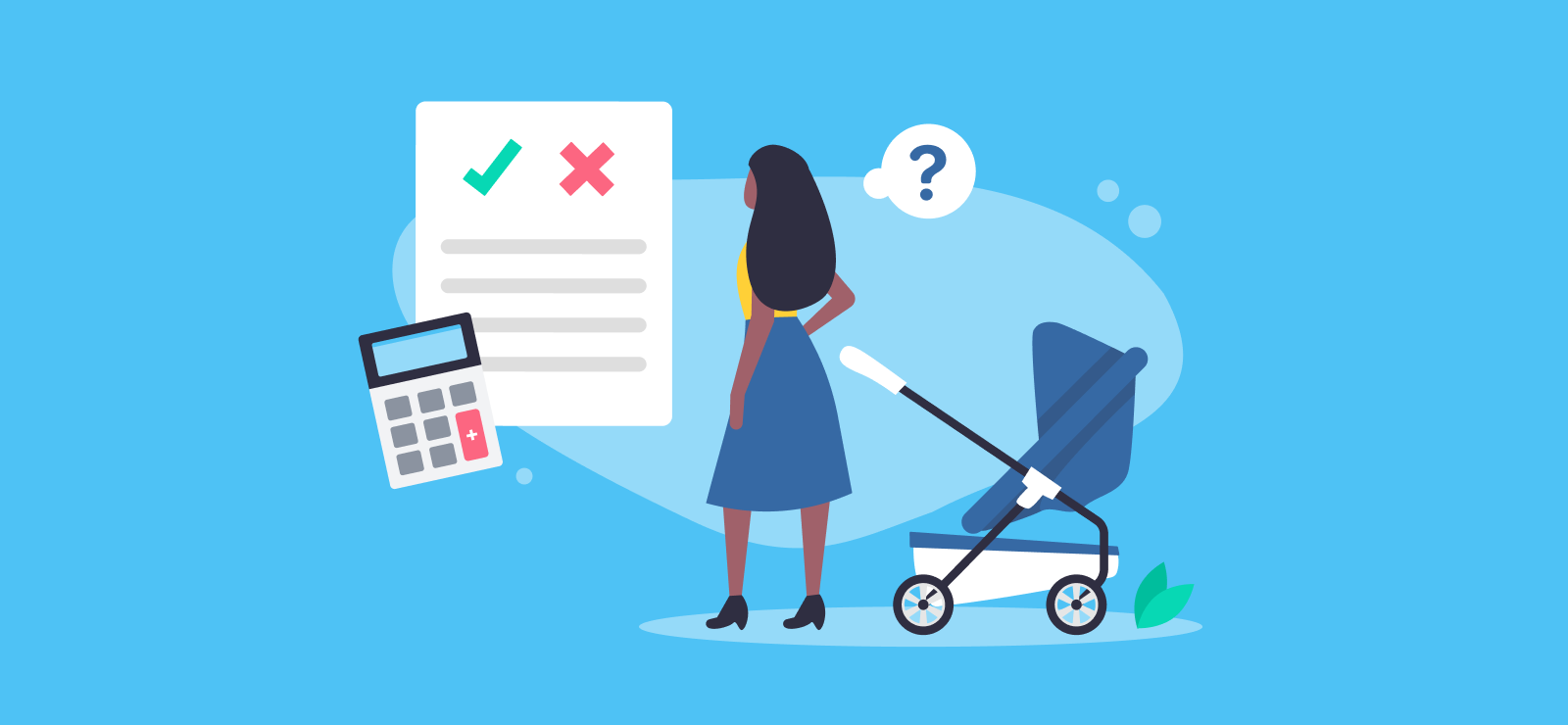

A Guide to Owning and Paying Tax on Glamping Pods
Glamping is all the rage, offering guests the chance to have a breather without completely abandoning the Wi-Fi or shower gel.
If you have a farm or some land, it could be the perfect venture. But what about paying taxes from your property income? In this blog we’ll discuss glamping in more detail, along with your tax obligations and what tax allowances and reliefs you might be able to claim if you launch your own glamping business.
What are glamping pods?
We’ve all heard of camping. Those of us that have partaken in a bit of camping will know it can sometimes be muddy, wet, and anything but luxurious.
‘Glamping’ on the other hand adds glitz and glam to camping. Often in fancy pods, it offers a more five-star feel with luxury facilities you wouldn’t find in a random tent in the woods. It’s increasingly popular and diverse, which makes it a great business idea – especially if you already have an accessible location!
What types of glamping experience I can offer?
Glamping can describe pretty much anything from large tents and fancy caravans to boutique shepherding huts. Other examples include:
- Tipis
- Yurts
- Tiny houses
- Treehouses
- Bubble domes
It really depends on your location and whether you have the planning permission, as well as your budget. You could (depending on the size of your glamping site) set up tipis in one area, and bubble domes for stargazing in another. As long as you’re putting the ‘glam’ in ‘glamping’ you’ve succeeded.
Do I need planning permission to set up glamping pods?
If you plan to operate for longer than 28 days, then the answer is yes. In the UK, the government allows individuals to run glamping/camping sites without needing any planning permission for 28 days per year.
Of course, like anything, there are things you won’t be able to do within this timeframe. For instance, you can’t lay any concrete bases or install treatment plants.
28 days could be a great ‘trial run’ before you begin the planning permission process – but since there’s restrictions on what you can do, your vision may be restricted in this time. Especially if you’re really going for that luxury feel.
Do I still need planning permission if I already have land and accommodation set up?
Even if you don’t need to develop your land to start a glamping site, you’ll still need planning permission.
For example
Let’s say you already have a private area with luxury sheds set up, which you’ve used for personal events such as parties and inviting your friends over. Even though nothing is being developed because it’s all already there, you’ll still need to apply for permission if you’re now changing its use.
Will I need to pay tax on glamping income?
You’ll need to ensure you pay taxes on the income you generate, depending on the tax bracket your profit falls into. The type of tax you need to pay, and how you submit your tax returns will depend on the business structure you choose (which we’ll cover next).
It’s worth checking whether or not you’re entitled to property allowance, too. You may be able to receive up to £1,000 of property income in a tax year without needing to tell HMRC or pay tax on it.
Choosing a business structure for your glamping business
Being ‘self-employed’ isn’t a legal business structure in itself – it’s more about the way you work rather than what your business is. Choosing a legal structure will dictate how you operate your business, as well as the type of taxes you’ll pay. We go over some of the most common examples below.
Sole Trader
A sole trader essentially means you are the business. You’re self-employed, and you’ll benefit from keeping all your profits after tax. It’s fairly straightforward in terms of taxes, and you’ll complete a Self Assessment to pay income tax and National Insurance depending on how much you’ve earned.
A key consideration to this type of business is unlimited liability, because that lack of separation between you and your sole trader business means you’ll end up being personally responsible for any liabilities or debts of the business.
Limited company
A great benefit to setting up a limited company is making yourself both a director and a shareholder of the business. This means you can pay yourself a combination of a salary and dividends – which can sometimes be much more tax efficient, depending on your circumstances and earnings.
Your liability is also ‘limited’, meaning your company’s debts aren’t yours personally. It can seem like much more effort than a sole trader business, because of the extra admin involved submitting tax returns and accounts for the business as well as Self Assessment returns to declare any personal untaxed income.
A partnership
This can be beneficial if you’d like to run your glamping business with someone else. There are different types of partnerships too. For instance, your partnership could be ‘incorporated’ as a Limited Liability Partnership (LLP) which provides the same protection in terms of liability as a limited company.
Another option is to run it as a ‘general’ partnership, which is less formal, You won’t need to register with Companies House, and instead one nominated partner will register the partnership for Self Assessment.
We have guides available for both Limited Liability Partnerships and general partnerships.
How can I reduce the tax bill for my glamping business?
Paying taxes as a small business can be stressful, but thankfully there are ways to manage the amount of tax you need to pay.
Capital allowances
Capital allowances can help reduce the tax you need to pay if you’ve purchased assets for your business, but this depends on what sort of asset you buy. The rules around capital allowances for the glamping industry depend on what sort of glamping pods you provide.
If your glamping pod is not fixed to the ground, meaning you could move it if you wanted, you may be able to claim for plant and machinery capital allowances under the annual investment allowance (AIA). Glamping pods that qualify are usually more basic, and not substantial enough to be classed as a building.
More well-equipped glamping pods that are fixed to the ground and are viable to live in (for example, because they have a fitted bathroom, kitchen, living room and bedroom) are more likely to be classed as buildings, and therefore not eligible for capital allowances.
Claiming expenses
Most businesses are able to claim expenses on anything used ‘wholly, and exclusively for their business.’
Glamping sites are fairly new, so it’s completely understandable if you’re confused, but your costs could also include marketing and advertising, so record absolutely everything and speak with an accountant if you’re not sure.
Need help with your taxes? Learn more about our online accounting services by talking to one of the team on 020 3355 4047 or get an instant quote.
Want to learn more?
Subscribe to our newsletter to get accounting tips like this right to your inbox

Read more posts...

The Accountancy Partnership – Our Positive Reviews
16th February 2026We’re proud of our customers’ reviews here at The Accountancy Partnership The reviews we receive from our customers show how hard we…
Read More
Maternity Pay for Self-Employed People
15th February 2026As a self-employed person you might be eligible to get Maternity Allowance payments for up to 39 weeks. It’s different to Statutory…
Read More
National Insurance for the Self-Employed
14th February 2026If you work for your own self-employed business, then you may need to pay National Insurance on the profits that you earn….
Read MoreConfirm Transactions
The number of monthly transactions you have entered based on your turnover seem high. A transaction is one bookkeeping entry such as a sale, purchase, payment or receipt. Are you sure this is correct?
Please contact our sales team if you’re unsure
VAT Returns
It is unlikely you will need this service, unless you are voluntarily registered for VAT.
Are you sure this is correct?
Call us on 020 3355 4047 if you’re not sure.
MTD IT Quarterly Updates
Your final, end of year MTD Income Tax submission is included in your fee.
You can submit the quarterly updates yourself using Pandle, or alternative bookkeeping software (which we recommend).
However, if you would prefer us to submit these updates, there is an additional fee of £35.00 per month.
Call us on 020 3355 4047 if you’re not sure.
Bookkeeping
You will receive our bookkeeping software Pandle for free, as part of your package.
You can use this to complete your own bookkeeping, or we can provide a quote to complete your bookkeeping for you.
Please select and option below:
Call us on 020 3355 4047 if you’re not sure.

